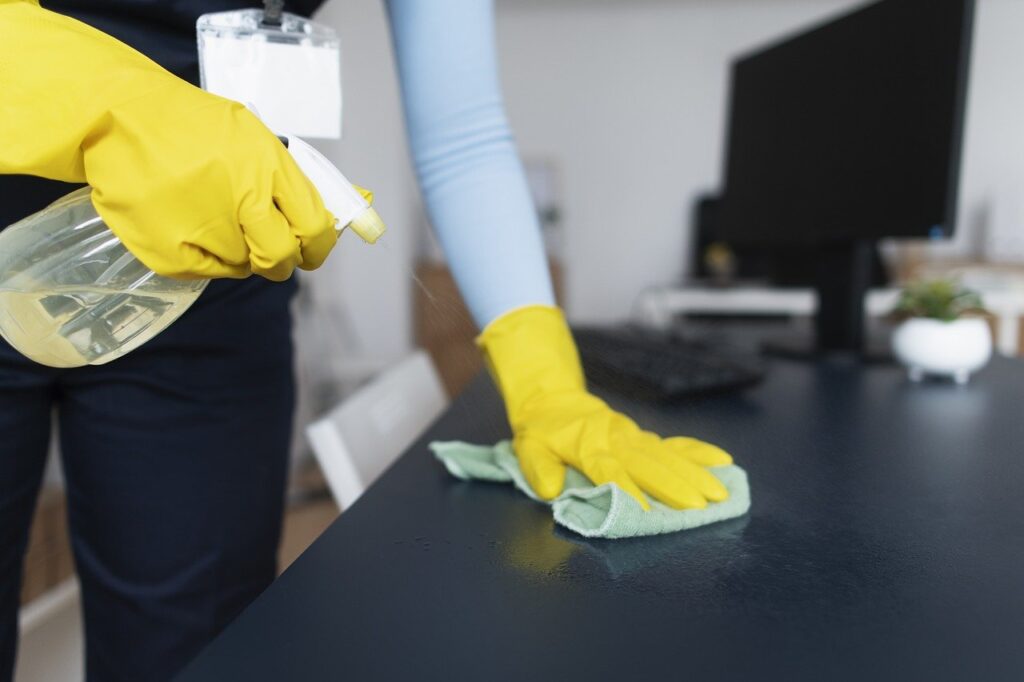In today’s world, where sustainability is becoming increasingly important, many people are looking for ways to reduce their environmental impact. One of the most effective strategies is to transition to zero waste living. But did you know that many zero waste swaps can also save you money?
From reusable products to DIY solutions, these simple changes not only benefit the environment but also save you money. Below, we’ll explore practical zero waste swaps that are both eco-friendly and budget-friendly, proving that you don’t have to spend a fortune to live sustainably.
As an Amazon Associate, I earn from qualifying purchases as well as commission via other affiliate links in this post. This is at no extra cost to you! Read the full disclosure here.
What is Zero Waste Living Anyway?
What is zero waste living—and what is it all about? I know sustainability and reducing waste are big priorities for a lot of us. But the idea of zero waste living can seem a little intimidating and extreme at first.
Zero waste living is really just about being mindful of the waste we create and finding simple ways to reduce it. It’s not about being perfect or eliminating every single piece of trash—that would be impossible. Instead, it’s about making small, sustainable changes in our everyday lives.
Living a more zero waste lifestyle doesn’t have to be expensive. In fact, a lot of the swaps can actually save you money in the long run. And it’s not an all-or-nothing approach—every small step towards reducing waste makes a difference.
The idea is to start with simple swaps and get creative.
Embracing Zero Waste Living Doesn’t Have to Break the Bank
Zero waste living sounds expensive, right? Well, that isn’t necessarily the case. In fact, adopting a more sustainable, zero waste lifestyle can actually end up saving you money in the long run.
By making small, intentional swaps that fit your budget, you can start slow and make the changes as money allows. You don’t have to overhaul your entire life overnight. Start with just a few zero waste swaps and go from there.
Easy Zero Waste Swaps to Save You Cash

Reusable Shopping Bags Instead of Single-Use Plastic
Savings: Can be upwards of $75/year ($.05/bag x 1500 bags)
Using reusable shopping bags instead of single-use plastic is simple but is one of the most impactful zero waste swaps we can all make to reduce our environmental footprint. It’s probably one of the most effective ways to cut down on plastic waste. In fact, some stores are starting to go away from plastic bags entirely.
While this one won’t save you a ton of money, check your local store to see if they offer a discount. Quite a few national chains offer up to $.10 off when you bring your own.
Related: Top 20 Tips for Saving Money at the Grocery Store
Swap Out Paper Towels for Washable Cloths
Savings: average $58/year if you use one roll a week
CCost: Average cost for reusable towels: $15/Pack of 10
Cloth towels are generally more absorbent than paper towels, so you end up using less to get the job done. I know some people are hesitant about using cloth because they worry about the extra laundry. Honestly, I don’t feel that it’s much more work. I just toss the towels in when I’m washing bath towels. No extra loads of laundry are necessary. I still keep paper towels on hand for extreme uses (i.e., cat vomit), but I typically only purchase a 3-pack once a year.
Ditch Bottled Water and Use a Reusable Bottle
Savings: Average of $426/year if you drink just 2 bottles a day
Cost: Average of $16/pitcher and $22/filters = $38/year
I definitely used to be one of those people who would grab bottled water every time I was out and about. It was convenient, but it was expensive, and it was wasteful as well. Now I keep a water pitcher in my fridge, and if I’m headed out to run errands, I take along a reusable water bottle.
Use Cloth Napkins Instead of Paper Ones
Savings: Approximately $54/year if you use the average of 6-packs a year
Cost: Average cost for reusable towels: $15/Pack of 10
I know we’re all used to the convenience of paper napkins, and I get it. But cloth napkins are in the same boat as paper towels. The cost is significant these days, and they are far more wasteful.
Plus, cloth napkins just feel a little fancier, and you can find so many cute ones at thrift stores. There’s something special about setting the table with cloth napkins that makes even a casual meal feel a little more elevated.
Buy in Bulk
Savings: Average of 27% off annual costs
Buying in bulk will help reduce packaging waste, but it can also save you a ton of money in the long run. When you buy items in bulk, whether it’s pantry staples, household cleaners, or personal care products, you typically get a discounted unit price. That means you pay less per ounce, pound, or individual item compared to buying the smaller, individually packaged versions. This can add up to serious savings.
Switch to Green Cleaning Products
Savings: Varies but you can save over 35% on average if you make your own
Making your own homemade green cleaning products not only ensures you know what is in the product you’re using; it may even save you money over time. There are a few simple products (soap, water, baking soda, vinegar, & lemon juice) that are used in most basic DIY recipes that you most likely already have in your home. Meaning you may not have to spend a dime to make this switch. Since some products are diluted by the manufacturer, making your own means the product may even go further.

Get Rid of Magazine Subscriptions and Use the Library
Savings: $40 to $80 per year
If you’re looking to cut spending to offset inflation, cancel your magazine subscriptions and instead utilize your local library. There are many other benefits of using the library, like being able to rent online access to books and magazines, and discounted or free local entertainment. Some host book clubs or author readings, which are another free source of entertainment.
Shop at Second-hand Stores
Savings: 25% to 50% per item
Second-hand stores offer a wide variety of pre-owned items, from clothing and furniture to books and household goods, at significantly discounted prices. By choosing to shop secondhand, you can find unique items at a fraction of the cost of mass-produced retailers. Additionally, shopping at second-hand stores reduces waste and supports a more sustainable circular economy, as items are reused rather than ending up in landfills.
Store Food Correctly So It Lasts Longer
Cost: The estimated food waste cost is $1866 per household per year
By storing food properly, you can extend the shelf life of a lot of fresh foods. The Food Network offers a comprehensive guide for nearly everything you might find in your fridge. Also, adding ethylene gas absorbers to your produce drawer not only helps with fridge smells, but it can also double or even triple the life of your fruit and vegetables.
Related: The Best Foods to Freeze List – Quick Tips to Save
Wool Dryer Balls Instead of Dryer Sheets
Cost: Wool Dryer Balls = $.01/load; Dryer Sheets = $.12/load
Savings: $.11/load ($5.72/year if you do one load a week)
I’ve been using wool dryer balls for years now. I typically run one load of laundry a week, and they last for about 1000 loads. I’m about 4 years into my initial $10 investment, and they’re still going strong.
Final thoughts: Zero Waste Swaps
Making zero waste swaps isn’t just good for the earth; it’s fantastic for your budget. Swapping out disposable items for reusable ones can really cut down your expenses over time.
Give it a shot! You’ll save money and help reduce waste. It’s a smart, sustainable choice that benefits both you and the environment.








1 thought on “Zero Waste Swaps That Can Actually Save You Money”
Comments are closed.